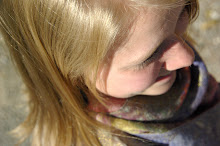okay. so this is a really boring post. i don't blame you for not reading the whole thing. or not reading any of it. but here is a small itty bitty glimpse of what i study and teach myself everyday in music history. like i said, this is only a very small portion of it.
its pretty exciting. but boring. at the same time. if that's even possible.
- - - - - - - - - -
The life and music of:
Robert Schumann (1810-1856)
Robert Schumann was born in Zwickau, Germany, to a bookseller who passed on his literary love to his son. At his mother’s insistence, he studied law, first at the University of Leipzig, then at Heidelberg. During this time, he immersed himself in the poetry of Byron and Goethe, attending an occasional lecture, and surrendered himself more and more to his passion for music, daydreaming at the piano. After convincing his mother, he returned to Leipzig to study under one of the foremost teachers of the day, Friedrich Wieck. He practiced intensively to make up for his late start, but physical difficulties in his right hand fingers ended his hopes as a pianist. He turned to composing, and in a burst of creative energy, composed his most important piano works while still in his 20s. His literary bent found expression in The New Journal of Music, which he founded, and under his direction, it became one of the most important journals for music criticism in Europe.
In the 1830s, his hectic life was intensified by his courtship of the gifted pianist and composer, Clara Wieck, daughter of his teacher. Her father opposed the marriage with a vehemence that bordered on the psychopathic. Clara was his supreme achievement, and he refused to surrender her to another. The couple was forced to go the court against him, and in 1840, they were married. Robert was 30, and Clara 21. This was Robert’s year of song, in which he composed over 100 Lieder, which represent his lyric gift at its purest.
The two musicians settled in Leipzig, pursuing their careers side by side. Clara became the foremost interpreter of Robert’s piano music, and contributed greatly to the spread of his fame. But neither her love, nor that of their children, could ward off the growing withdrawal from society that plagued her husband. Moodiness and nervous exhaustion grew into a severe breakdown in 1844. The couple moved to Dresden where he appeared to recover. However, the periods of depression returned even more frequently.
In 1850, Schumann was named the director of Düssendorf, but he was ill suited for public life, so he had to retire from the post. He began to complain of unnatural noises in his head. He continued to experience auditory hallucinations, once even rising in the middle of the night to write down a theme he imagined had been brought to him by spirits of Schubert and Mendelssohn. This was his last melody. A week later, in a fit of depression, he threw himself in the Rhine river, and was rescued by fishermen. Clara had no choice but to place him in a private asylum near Bonn, where he died two years later.
Schumann is the true romantic. His piano pieces brim with impassioned melodies, novel changes in harmony, and driving rhythms. He often attached literary meanings to his music, giving them characteristic titles. He was especially fond of cycles of short pieces connected by a literary theme or musical motto.
Schumann ranks second only to Schubert in composing Lieder. A common theme he liked to use was love, especially from a woman’s point of view. His four symphonies are Romantic in feeling, and communicate a lyric freshness that has preserved their appeal.
- - - - - - - - - -
like i said. i don't blame you for not reading all of that.
:P

3 comments:
That's pretty intense...having to go to court against your future father-in-law. Yeesh...
oh wow. i learn about this dude last year. He invented a contraption to hold his pinky up out of the way while practising ( or something like that) and it actually ended up messing up his hands. So he was gonna be an amazing piano player but he would never get to be that good because of his messed up hand. neat stuff
carol-lee
dan
dan
yeah. i heard about that from my piano teacher too. but it's not in my history book:(
Post a Comment